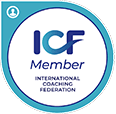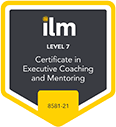
Ethical Coaching Practice
What is ethical coaching practice?
ICF Code of Conduct & Ethics
What is key to me in my practice is to behave ethically and authentically, demonstrate personal integrity, honesty and responsibility. I like coaching with ‘Backbone and heart’ (O’Neill, 2007) and ‘fearless compassion’ (Hawkins and Smith, 2013), and respect and belief in a client. Acknowledging the code of conduct and ethics demonstrates commitment to high standards of practice. I am a member of and use the International Coaching Federation (ICF) Codes of Conduct & Ethics in my own practice. Thus is an evidence of professionalism and quality assurance. I use ICF Core Competencies as a reference for my continued professional development (CPD) as a coach.
The key ethical behaviours I follow in my coaching practice are honesty, responsibility, personal integrity, authenticity, openness, making clear moral choices and confidentiality. The confidential nature of the relationship between coach and client forms strong basis for trust. I also follow a general principle of ‘Do no harm’.
Contracting, Ground Rules & Confidentiality
In my practice I sign up to the ICF code of conduct and share the details of it with each new client at the start. This allows for the client to understand better what serves in their best interest. And for them to use it as a basis for performance evaluation and quality assurance of our coaching relationship. At the beginning of a coaching relationship it is vital to have a structured discussion with the potential client. It is to identify the expected outcomes, measures of success and agreement on the boundaries for the coaching.
Good contracting ensures that those involved share the same idea of the coaching purpose. That the respective roles and responsibilities are made explicit. And that the responsibility is shared for the upcoming process. Also, the confidential nature of the relationship between coach and client forms the basis for trust. So, it is a good time to discuss confidentiality and agree on a feedback loop. The latter is key for three-way contracting in executive coaching, as it might affect how confidentiality is being understood. It also demonstrates the professionalism to the executive client. Having a clear contract also creates a relationship in which honesty and openness are encouraged. It also helps clarify and agree what are the boundaries.
Diversity, Equality & Inclusion
To build effective coaching relationship in a diverse social and cultural environment a coach should be non-judgemental and value diversity in all its forms. Moreover, the coach should maintain confidentiality and establish a high level of trust and a firm connection with a client. I do it by demonstrating respect for client’s perceptions, learning style, and personal being. Coaching should ideally be suited to be sensitive to diversity of all varieties.
For an effective coach the fundamental task is to enter his or her client’s frame of reference including culture as one dimension. Always remembering that the map is not the territory. After nearly ten years of experience working across cultures I have developed several specific strategies that I use in my coaching practice. First, I search for hidden layers and bring them to the surface, both in myself and in my clients. Second, I personalise the approach to avoid social/cultural stereotypes. Third, I forge a partnership. Underlying any specific relationship-building tactics, the most powerful tool for forging partnership is the desire of the coach to understand.
Choose your coaching package here.




